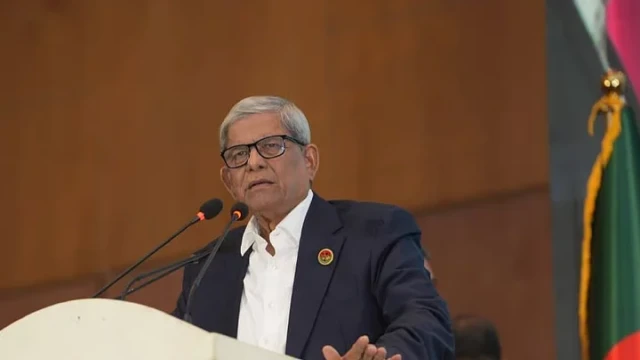Damascus/Moscow, Dec 09 (V7N) — Syrian President Bashar al-Assad fled the country on Sunday night as rebel forces captured the capital, Damascus, marking the end of the Assad family's nearly six-decade rule. Reports suggest Assad, along with his family, has sought refuge in Russia, his long-time ally.
Russian state media, citing Kremlin sources, confirmed that Moscow granted political asylum to Assad, though no official statement has been released. The Kremlin later clarified that the decision was made for "humanitarian reasons." Assad's departure came after a rapid rebel campaign led by Hayat Tahrir al-Sham (HTS), an armed opposition group, which seized key cities including Aleppo and Hama within days.
Rebel forces entered Damascus unopposed on Sunday, signaling the collapse of Assad's regime. Opposition leaders, including HTS chief Abu Mohammed al-Jolani, pledged to safeguard Russian military bases and diplomatic facilities in Syria. The swift turn of events has raised questions about Russia's role and future strategy in the region.
The fall of Damascus marks a significant setback for Russia, which has been Assad's staunchest ally since the Syrian civil war began in 2011. Russia deployed troops and airpower in 2015, helping Assad reclaim territories and maintain his grip on power. Moscow's interests in Syria include its strategic naval base in Tartus and the Hmeimim airbase, crucial for its Eastern Mediterranean operations.
Despite assurances from Syrian opposition leaders about the safety of Russian facilities, the Kremlin expressed "deep concern" over the unfolding situation. Russian officials hinted at starting UN-backed talks to resolve the crisis. Meanwhile, Russian state television criticized the Syrian military for failing to resist the rebels.
The fall of Assad's government is being closely monitored by global powers. The United States, long a supporter of Syrian rebels, described Syria as a "chaotic state" and accused Russia of orchestrating Assad's departure. President-elect Donald Trump tweeted that Assad's loss of Russian support led to his escape, further complicating Middle Eastern geopolitics.
Israel and Turkey are also likely to leverage the power vacuum for their own strategic interests. For the United States and its allies, the end of Assad's regime presents both opportunities and challenges, especially in countering Iran's influence in the region.
Bashar al-Assad's rise to power in 2000 followed the death of his father, Hafez al-Assad, who ruled Syria with an iron fist for nearly 30 years. The Assad family maintained strong ties with Moscow, securing military and economic support. However, their authoritarian rule sparked widespread dissent, culminating in the 2011 civil war that devastated the nation.
As the Syrian conflict enters a new phase, the international community remains divided on how to address the humanitarian and political crisis left in its wake.
END/AJ/DHK






























Comment: